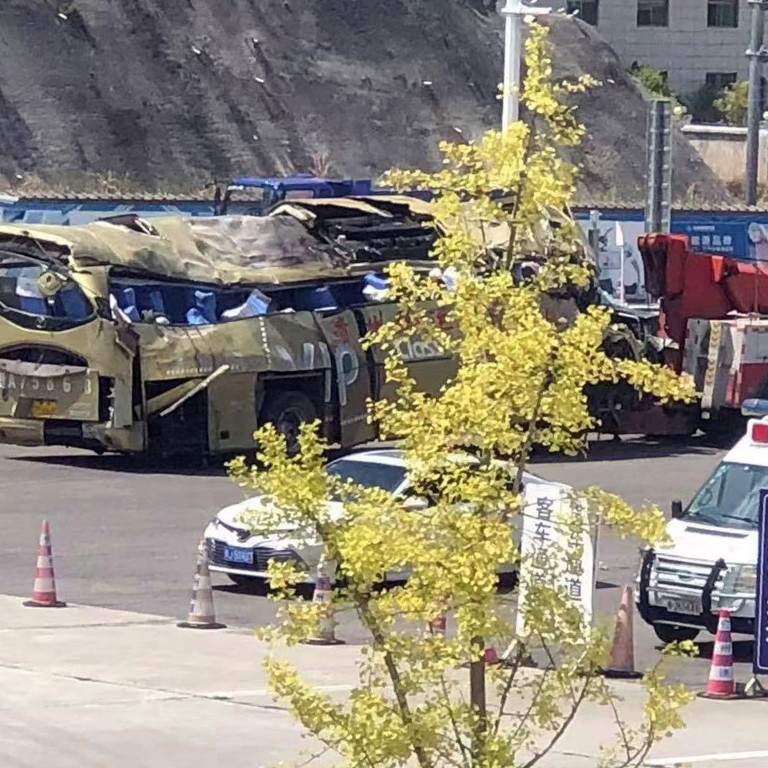
Chinese censors quell Covid-19 criticism sparked by fatal crash
- Hundreds of social media posts linking the deaths of 27 bus passengers to local strict prevention measures taken down
- Microblogging site Weibo said the commenters had jeered at the accident or affected victims and their families
The bus was taking Covid-19 close contacts from their homes in Guiyang, the capital of Guizhou province, to a quarantine facility 260km (160 miles) away when it crashed soon after 2am on Sunday, killing 27 people.
China’s fatal bus crash sparks online outcry over Covid-19 controls
Within 24 hours of the crash, more than 69,000 comments appeared on Chinese social media and topics related to the issue on microblogging site Weibo had been viewed more than 400 million times.
An apology and the suspension of three officials pending an investigation did little to take the heat out of the discussion, with a number of posts calling for an end to the practice of transporting residents hundreds of kilometres away.
This week, microblogging platform Weibo said more than 652 public posts had been deleted because they “violated the site’s policies” and 108 accounts were suspended.
According to Weibo, the posts had jeered at the accident or negatively affected the victims and their families.
China calls for mass Covid-19 testing, but it could burden local governments
Posts on other social media platforms, such as WeChat, were also removed, including a post that broke news of the crash before state media.
“What good does apologising do?” one commenter wrote on Weibo. “All you do is apologise, but when the public [asks] questions, their posts will be deleted.”
One account that was deleted on Tuesday had shared the story of an 18-year-old woman, who said her cousin was informed by his teachers that his parents had died in the crash. “I asked him if he was all right, and he appeared calm but I think he is just trying to act tough.”
The crash threw a spotlight on China’s tough zero-Covid policy and its implementation by local officials. Some social media commenters questioned why the bus was ordered to leave Guiyang after midnight, in violation of national safety regulations.
“Couldn’t they have waited until the morning? Are those few hours really so important?” one online comment said.
Human cost of China’s zero-Covid policy measured in stress, anxiety
Guiyang continues to enforce zero-Covid measures in parts of the city, despite the government’s announcement on Monday that the risk of community transmission had been “effectively contained”.
On Wednesday, authorities launched another round of mass testing in a few districts, including Yunyan, home of the bus crash victims.
In other parts of the city which have been declared low-risk, residents have been allowed to go back to work, shopping and travel outside Guiyang. However, all public parks, museums, gyms and cinemas remain closed, and dining-in at restaurants is still banned.
Also on Wednesday, Guizhou province reported 57 local confirmed cases, 16 of them in Guiyang, and 131 asymptomatic cases, with 62 in the provincial capital.

.jpg?itok=H5_PTCSf&v=1700020945)